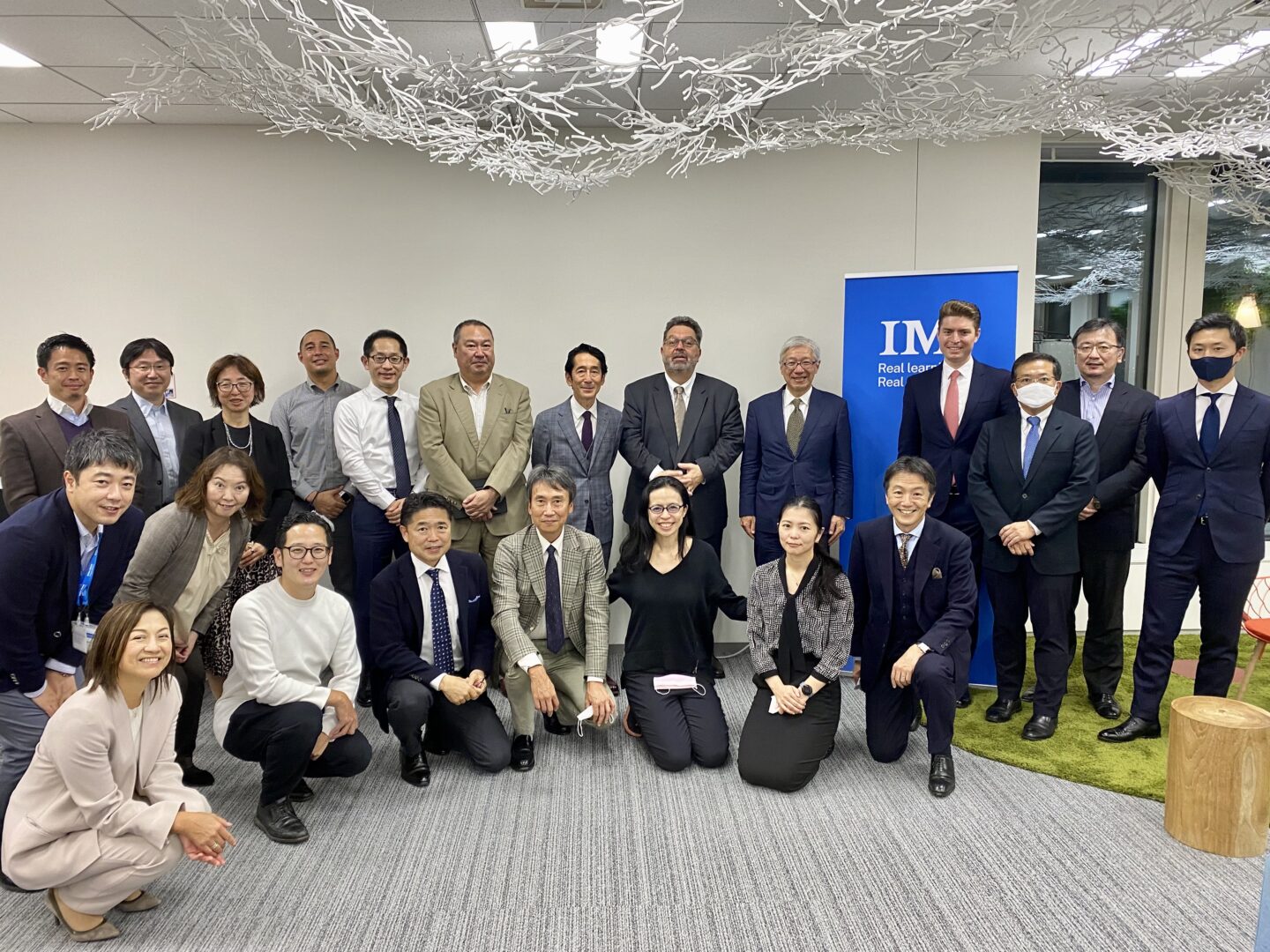
Speaking at the IMD Alumni Club in Tokyo on 7 November, IMD President Jean-François Manzoni talked about how the institute has confronted and transformed itself in the face of the great crisis of the pandemic, the challenge of sustainability and what kind of leadership is required in these times.
Manzoni said more organizations should be like the legendary Canadian ice hockey player Wayne Gretzky. He told the story of how Gretzky was quizzed about how he could skate so slowly and yet be so good; he said the trick was to skate to where the puck is going to be, not to where it is.
“What we say to organizations is to skate to where the puck will be three to five years from now,” he explained. “Get ahead of that curve and invest in shifting your portfolio to products and services that are part of the solution.”
A perfect storm
The COVID-19 pandemic was “a perfect storm” that forced IMD to transform itself for the future, Manzoni added. With travel bans calling into question the way the institute delivered many of its programs, they decided to use the crisis to accelerate their innovation process.
“I said [to my colleagues] that we’re going to innovate as much over the next three months as we would have over the next three years,” he recalled.
The point, he emphasized, was to be aware that there are many issues outside of one’s control about which nothing can be done. “Let’s worry about the ones that we can control, and what we do to control them.”
Although it was stressful, he also described the time as “exhilarating”. Thanks to the support and the help of the executive team, IMD has navigated the pandemic, the war in Ukraine and an economic slowdown so well that Manzoni was able to describe this year as “outstanding”.
“I think that we’re coming out of the crisis with a stronger brand and stronger capabilities,” he said.
Ahead of the curve
Weighing up the issues of sustainability, Manzoni was clear that he and IMD believe in the capitalist system.
“The way that the business world has created wealth over the last decades has lifted hundreds of millions of people out of poverty,” he said. “This has resulted in incredible advances in healthcare and life expectancy in most countries and has given both opportunity and an enormous amount of freedom to a lot of people.” But it has done so in a way that is “ecologically unsustainable and insufficiently inclusive, both economically and socially.”
Given the growing societal awareness of what has happened, corporations need to be innovative and ahead of the curve, he explained. “It’s the best business opportunity that’s going to occur in our lifetime.”
He cited French multinational Schneider Electric, which used to make small electrical parts but is now a world leader in automation and energy management. In doing so, sales have grown three times, profits five times, and its share price six times. “They said: ‘We’re going to behave as if energy management will become a critical component.’ And they were right.”
As for IMD’s own sustainability rankings, they have been improving. “Internally, we’re getting our act together more and more,” he said, pointing to the Center for Sustainable and Inclusive Business and the launch of the BS4CL initiative with seven other business schools to help shape climate leadership last year.
Delayed gratification
The most important issue surrounding the future of leadership is, Manzoni said, hope. “When there is hope, and when there is confidence, people will accept delayed gratification. There cannot be any progress without delayed gratification.”
Conversely, when there is no hope – and no trust – people will not accept delayed gratification.
It is, he said, one of the issues facing leadership in politics, at the moment, especially in Europe.
“There is a leadership model that probably is being reinvented, but this reinvention seems to be relatively slow,” he explained.
But IMD is not made up of “cultural imperialists” preaching practices that have been successful in other contexts, he added. “We deal with principles, and we help executives, corporations, and countries to translate these principles into their own context.”
Manzoni concluded, “We don’t walk around asking the world: ‘Why aren’t you doing it this way or that way?’ We are interested in working with executives and with organizations that want to improve their functioning and innovate to be prosperous, sustainable, and inclusive.
“We want our voice in key issues of importance to the world to be loud – including on the issue of standing for a more prosperous, but also a more sustainable and inclusive world.”


